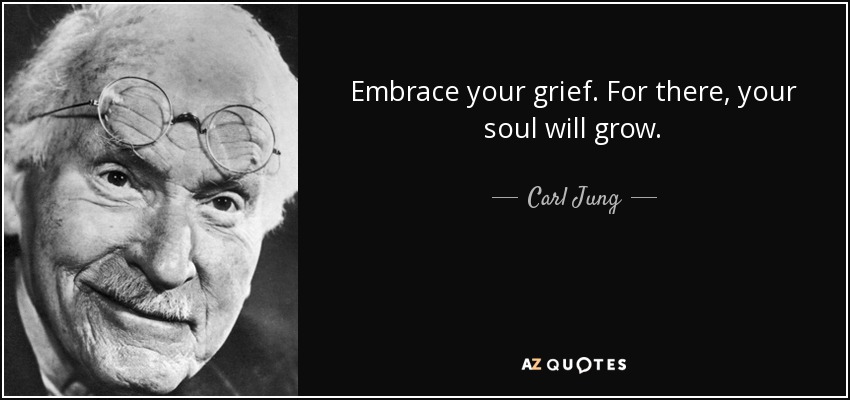How to Face Grief and Come Back Stronger: Carl Jung’s Insights
Estimated reading time: 5 minutes
Grief is one of the most painful human experiences, yet it’s also one of the most transformative. Carl Jung, the renowned Swiss psychiatrist, didn’t just see grief as something to “get over.” Instead, he believed it could be a powerful force for personal growth, if we face it the right way.
For entrepreneurs, business leaders, and anyone navigating high-pressure environments, grief isn’t just about losing a loved one. It can come from failure, the end of a business, a broken partnership, or even the loss of an old identity as you evolve. Jung’s wisdom offers a roadmap for not just surviving grief but using it to rebuild stronger.
Grief as a Catalyst for Transformation
Jung’s most striking idea is that grief isn’t just pain, it’s a doorway to psychic rebirth. When we lose something or someone central to our lives, the old version of ourselves shatters. That collapse is agonizing, but it’s also necessary.
1. The Collapse of Identity
Grief forces us to ask: Who am I without this person, this job, this dream? For business leaders, this might mean redefining yourself after a failed venture or a career shift. Jung called this process individuation becoming a more complete, self-aware person by integrating all parts of your experience, even the painful ones.
Practical Takeaway: Instead of rushing to “fix” the pain, sit with it. Journal, reflect, and ask yourself what this loss reveals about what truly matters to you.
2. Legitimate Suffering vs. Neurosis
Jung noticed something fascinating: people often develop anxiety, addiction, or other neurotic behaviors when they refuse to face grief head-on. He called this “substitute suffering”avoiding real pain by creating smaller, more manageable problems.
For example, an entrepreneur who buries themselves in overwork after a business failure might be masking deeper grief about their identity or self-worth.
Practical Takeaway: Ask yourself: Am I distracting myself from real pain? Sometimes, the healthiest thing you can do is let yourself feel the full weight of the loss.
3. Grief Illiteracy in Modern Life
We live in a culture that often avoids grief. We’re told to “stay positive,” “move on quickly,” or “focus on the next opportunity.” But Jung warned that unprocessed grief doesn’t disappear—it resurfaces as depression, burnout, or even physical illness.
This is especially dangerous in high-performance environments like startups or corporate leadership, where vulnerability is often seen as weakness.
Practical Takeaway: Normalize grief in your professional life. Leaders who acknowledge their own struggles create teams where people feel safe to process setbacks authentically.
4. Mortificatio: The Alchemy of Grief
Jung borrowed the alchemical term mortificatio, a symbolic death that leads to rebirth. In business terms, think of it like a pivot. the old model fails, but from that “death,” a stronger, wiser version emerges.
Steve Jobs’ exile from Apple in 1985 was a mortificatio moment. He later returned with a deeper vision that reshaped the company.
Practical Takeaway: When facing failure, ask: What needs to “die” so something better can emerge? Sometimes, holding on to what’s broken prevents a true comeback.
5. Unio Mentalis: The Mind-Soul Connection
Jung believed grief could reunite the rational mind with the deeper soul. In practical terms, this means balancing logic (e.g., “I need to rebuild my finances”) with emotional wisdom (“I also need time to heal”).
Leaders who ignore this balance often make impulsive decisions or become emotionally detached.
Practical Takeaway: Integrate reflection into your routine. Meditation, therapy, or even long walks can help bridge the gap between “business strategy” and inner growth.
How to Apply Jung’s Wisdom in Business and Life
- Don’t Rush the Process
Grief isn’t linear. Whether you’re mourning a failed project or a personal loss, give yourself permission to move through it at your own pace. - Reframe the Narrative
Instead of “I failed,” try “I’m being reshaped.” Jung’s approach turns grief from an enemy into a teacher. - Build a Support System
Find mentors, therapists, or peers who understand grief’s role in growth. Isolation magnifies pain; connection helps transform it. - Use Rituals
Rituals like writing a letter to your former business or holding a “funeral” for an old goal can help solidify the transition. - Look for the New Identity
After loss, ask: Who am I becoming? Often, the most resilient leaders are those who’ve faced deep grief and rebuilt with greater clarity.
Final Thought: Grief as a Competitive Advantage
In a world that glorifies hustle and ignores pain, those who learn to face grief with Jung’s wisdom gain an unexpected edge. They lead with more empathy, make decisions with deeper insight, and build businesses (and lives) that aren’t just successful, they’re meaningful.
Grief isn’t the end. It’s the messy, painful, necessary beginning of whatever comes next.








